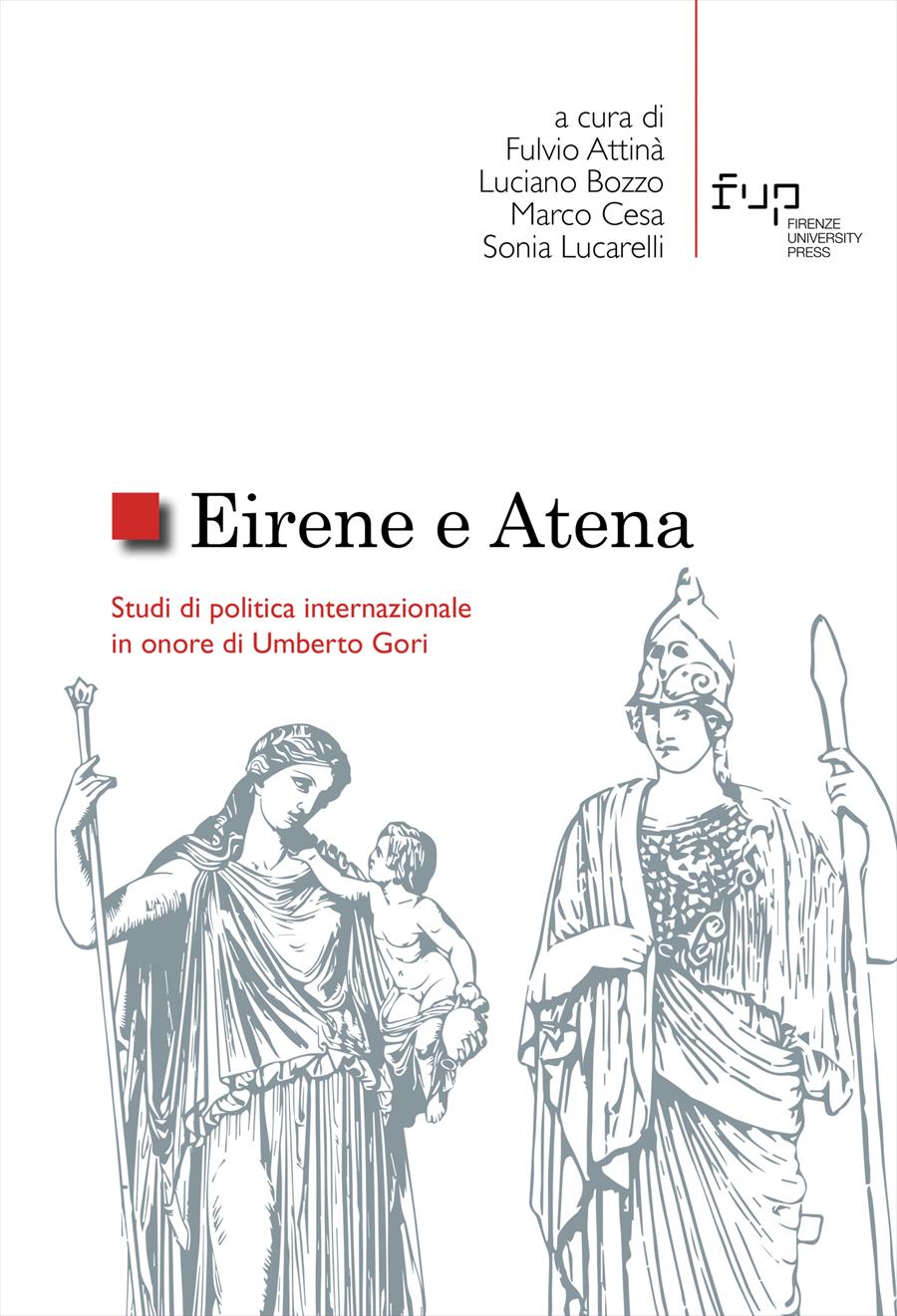- Eirene e Atena
- A cura di Fulvio Attinà, Luciano Bozzo, Marco Cesa, Sonia Lucarelli
Resilient or Obsolete? Reflections on the Liberal World Order and its Crisis
- Sonia Lucarelli
- © 2022 Author(s) |
- CC BY 4.0
- DOI: 10.36253/978-88-5518-595-0.14
From its beginnings, in the aftermath of the first post-war period, the liberal order has significantly changed the texture, actors and tones of international politics, aiming to create institutions and rules that harnessed the forces that for centuries led political communities to wage war. Never fully realized, the liberal order has produced the most significant network of connections between societies, going so far as to make war unlikely in the areas where it has established itself most profoundly. An ambitious model which, refusing to separate the peaceful space of liberal democracy from the international one of Westphalian states, it promised widespread well-being, security and prospects for progress for individuals and groups. Today, however, many of its promises have been broken, illiberal actors have taken on ever-increasing economic and political weight, and the liberal world has become fragmented and weakened. Moreover, the crisis of liberal democracy within states and the phenomena of “autocratization”, as well as the difficulty of liberal societies in giving effective responses to the challenges posed by a rapidly evolving technological world, represent challenges that make the liberal order's resilience uncertain. This chapter aims to analyze the main features of the crisis of the liberal order to evaluate its possible evolution.
- Keywords:
- international order,
- liberal order,
- multilateralism,
- crisis,
University of Bologna, Italy - ORCID: 0000-0003-2968-7435
- Acharya, Amitav. 2014. The End of the American World Order. Cambridge: Polity Press.
- Alcaro, Riccardo. 2018. “The liberal order and its contestations. A conceptual framework.” The International Spectator, Special Issue 53, 1.
- Baldwin, Richard. 2016. The Great Convergence: Information Technology and the New Globalization. Cambridge: the Belknap Press of Harvard University Press.
- Boese, Vanessa A., Staffan I. Lindberg, and Anna Lührmann. 2021. “Waves of autocratization and democratization: a rejoinder.” Democratization 28 (6): 1202–210.
- Bull, Hedley. 1977. The anarchical society: a study of order in world politics. London, Macmillan.
- Burton, John W. 1972. World society. Cambridge: Cambridge University Press.
- Buzan, Barry, and George Lawson. 2015. The global transformation: history, modernity and the making of international relations. Cambridge: Cambridge University Press.
- Clunan, Anne L. 2018. “Russia and the Liberal World Order.” Ethics & International Affairs 32 (1): 45–59.
- Ferguson, Niall. 2012. Empire: How Britain made the modern world. London: Penguin.
- Fitzi, Gregor, and Juergen Mackert, edited by. 2018. Populism and the Crisis of Democracy. Volume I: Concepts and Theory. Taylor & Francis.
- Flockhart, Trine. 2016. “The coming multi-order world.” Contemporary Security Policy 37 (1): 3–30.
- Giusti, Serena, and Elisa Piras, edited by. 2020. Democracy and Fake News: Information Manipulation and Post-Truth Politics. London: Routledge.
- Gori, Umberto. 1996. “I diritti umani come fattore d’influenza delle relazioni internazionali.” In Nazioni Unite e diritti dell’uomo a trent’anni dall’adozione dei patti. Atti del Convegno sui diritti umani. Teramo 22-23 marzo 1996, a cura di Paolo Benven
- Gori, Umberto. 2018. “The Balance of Power in Cyberspace.” In Confronting an Axis of Cyber? China, Iran, North Korea, Russia in Cyberspace, edited by Fabio Rugge, 143–60. Milano: Ledizioni-LediPublishing.
- Ikenberry, John G. 2011. Liberal Leviathan: The origins, crisis, and transformation of the American world order. Princeton: Princeton University Press.
- Ikenberry, John G. 2018. “The end of liberal international order?” International Affairs 94 (1): 7–23.
- Ikenberry, John G. 2020. A World Safe for Democracy: Liberal Internationalism and the Crises of Global Order. New Haven: Yale University Press.
- Ikenberry, John G. Nathan, Andrew J. Thornton, Susan Zhe, Sue, and John J. Mearsheimer. 2022. “A Rival of America’s Making? The Debate Over Washington’s China Strategy.” Foreign Affairs March-April 2022.
- Kagan, Robert. 2003. Of Paradise and Power. New York: Knopf.
- Kanet, Roger E. 2018. “Russia and global governance: the challenge to the existing liberal order.” International Politics 55: 177–88.
- Keohane, Robert O. Nye, Joseph S. 1977. Power and interdependence. World Politics in Transition. Boston: Little and Brown.
- Lucarelli, Sonia. 2020. Cala il sipario sull’ordine liberale? Crisi di un sistema che ha cambiato il mondo. Milano: Vita e Pensiero.
- Maull, Hanns W. 2019. “The Once and Future Liberal Order.” Survival 61 (2): 7–32.
- Milanovic, Branko. 2016. Global inequality: A new approach for the age of globalization. Cambridge: Harvard University Press.
- Mudde, Cas. 2004. “The Populist Zeitgeist.” Government and Opposition 39 (4): 541–63.
- Mudde, Cas. 2013. “Three decades of populist radical right parties in Western Europe: So what?” European Journal of Political Research 52: 1–19.
- Parsi, Vittorio E. 2018. Titanic: Il naufragio dell’ordine liberale. Bologna: il Mulino.
- Ruggie, John G. 1992. “Multilateralism: the anatomy of an institution.” International Organization 46 (3): 561–98.
- Suisheng, Zhao. 2018. “A Revisionist Stakeholder: China and the Post-World War II World Order.” Journal of Contemporary China 27 (113): 643–58.
- The Telegraph. 2011. “Nicolas Sarkozy declares multiculturalism had failed.” The Telegraph, February 11, 2011.
- Weaver, Matthew. 2010. “Angela Merkel: German multiculturalism has ‘utterly failed’.” The Guardian, October 17, 2010.
Informazioni sul capitolo
Titolo del capitolo
Resilient or Obsolete? Reflections on the Liberal World Order and its Crisis
Autori
Sonia Lucarelli
Lingua
English
DOI
10.36253/978-88-5518-595-0.14
Opera sottoposta a peer review
Anno di pubblicazione
2022
Copyright
© 2022 Author(s)
Licenza d'uso
Licenza dei metadati
Informazioni bibliografiche
Titolo del libro
Eirene e Atena
Sottotitolo del libro
Studi di politica internazionale in onore di Umberto Gori
Curatori
Fulvio Attinà, Luciano Bozzo, Marco Cesa, Sonia Lucarelli
Opera sottoposta a peer review
Numero di pagine
208
Anno di pubblicazione
2022
Copyright
© 2022 Author(s)
Licenza d'uso
Licenza dei metadati
Editore
Firenze University Press
DOI
10.36253/978-88-5518-595-0
ISBN Print
978-88-5518-594-3
eISBN (pdf)
978-88-5518-595-0
Collana
Studi e saggi
ISSN della collana
2704-6478
e-ISSN della collana
2704-5919
